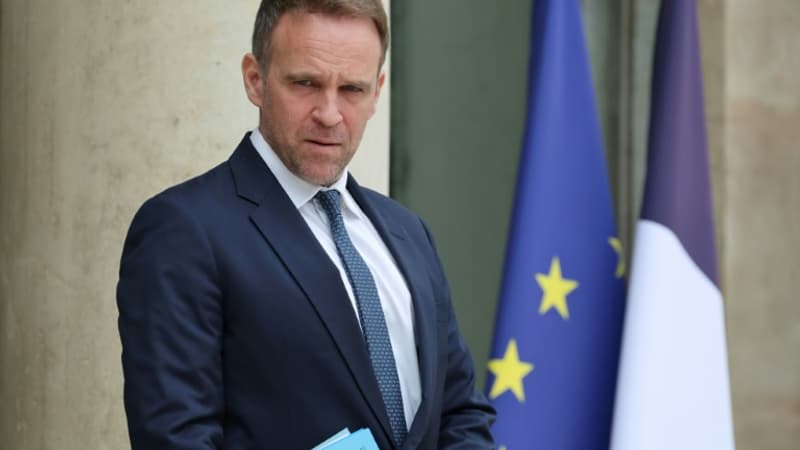Also developed mixed for Marc Ferracci. RTL guest on Monday, July 28, the Minister of Industry and Energy expressed “a form of relief” linked to “the exit of uncertainty” that the agreement allows Sunday between the United States and the European Union on customs tasks … but, like its colleague Benjamin Haddad, Minister of Europe, considers that “it is an agreement that is unbalanced.”
The latter “must encourage us to continue working in commercial rebalancing between Europe and the United States,” he insisted on the Minister of Industry and Energy.
On Sunday, the president of the United States, Donald Trump, welcomed the “greater agreement ever signed”, providing customs duties of 15% in European exports to the United States. Until now, they have been 10% since the arrival of Donald Trump to the White House, which threatened them with taxes of 30% on August 1.
“It is an agreement that is related to extremely important volumes, it covers almost all manufactured and agricultural goods that refer to trade between the United States and Europe,” recognizes Marc Ferracci.
Future technical negotiations
Marc Ferracci now expects commitments of the European Commission that has concluded this agreement with Donald Trump. “It has a responsibility today, to accelerate, consolidate and support measures for our industrial companies, measures to combat unfair competition, which comes from Asia, from any country,” he said.
“In this sense, we need in the coming weeks, have results,” he continued.
Taking into account that “this agreement is not the end of the story”, the Minister of Industry and Energy pleads “to accelerate in our competitiveness agenda.”
As Marc Ferracci recalled, a technical negotiation phase will now open. This will allow to discuss “in the detail of the exemptions that can be those of the European sectors against US customs duties.” A phase that could “the last weeks, months,” said the minister.
Using the European anti-coercion tool?
Despite the concerns expressed in the automotive sector but also on the side of the winemakers, “it is too early,” according to the minister, to say who will be the first victim of this new commercial agreement between the EU and the United States. “I am attentive to my manufacturers, all sectors, I was last week to the head of a National Council of Industry that adopted an opinion (…) that said that an unbalanced agreement would have potentially harmful consequences for the European industry with losses of employment, losses of competitiveness.”
And to do this, the minister asks the European Commission not to exclude the use of the anti-coercion tool. “A tool that we should not deprive ourselves to use. This allows, for example, to limit access to US companies to European public procurement, this allows you to introduce a penalty of certain players such as digital platforms,” he said.
Source: BFM TV


